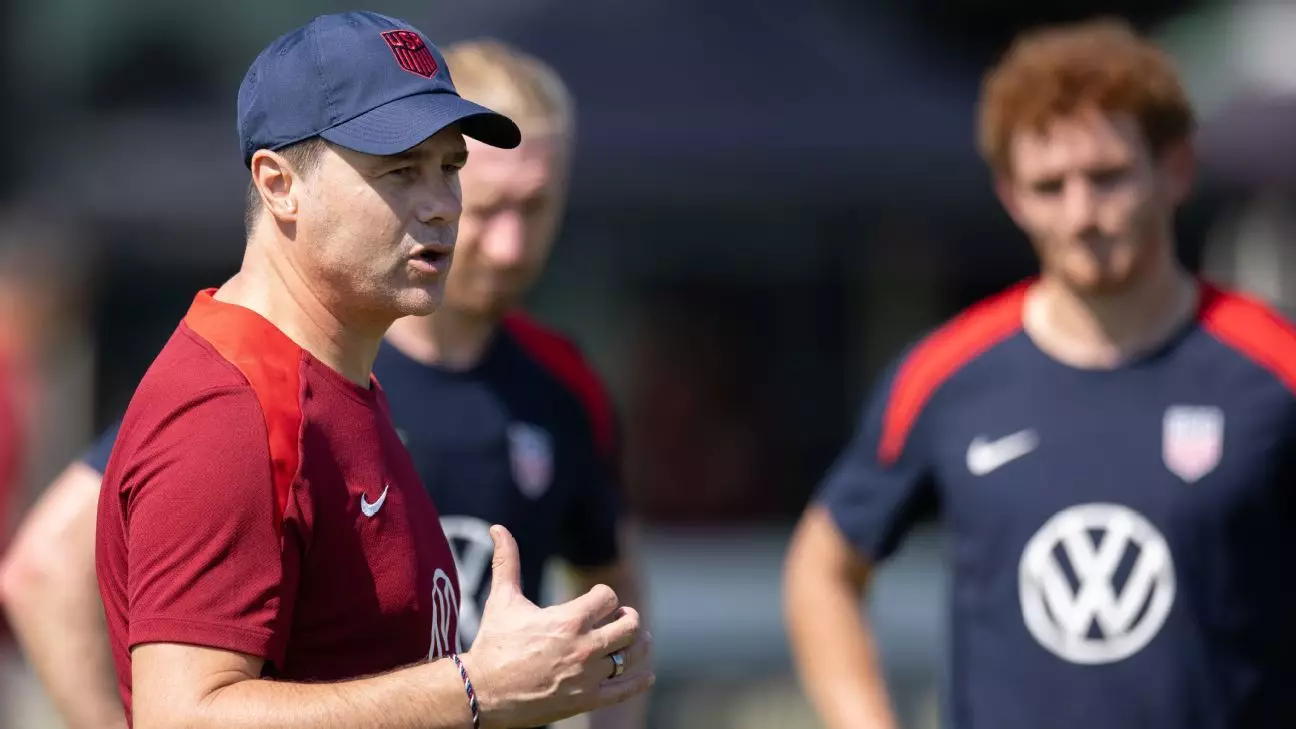As anticipation builds for the 2026 FIFA World Cup, the U.S. men’s national soccer team (USMNT) finds itself at a crossroads of immense responsibility and potential. Head coach Mauricio Pochettino has expressed that hosting the tournament is not merely a passive honor but a “massive, massive responsibility.” This sentiment encapsulates the dual challenge of performing on the field while also nurturing the sport’s growth within a country where soccer is still gaining its footing amid more established American sports. As the U.S., alongside Canada and Mexico, prepares to welcome teams from around the globe, Pochettino’s vision extends beyond mere competition; it seeks to cultivate a love for soccer among fans and inspire a collective belief in the team.
Pochettino’s inaugural match at the helm against Panama at Q2 Stadium serves as a crucial moment, setting the tone for USMNT’s future endeavors. The significance of this match lies not only in securing a win but in generating excitement and solidarity among supporters. The coach’s acknowledgment of fan engagement reaffirms that success on the field is intimately linked to community support off the field.
Reflecting on the triumphs and challenges of past World Cups, one cannot overlook the impact of the 1994 edition hosted in the U.S. That tournament was a watershed moment for soccer in America, giving birth to Major League Soccer (MLS) and establishing a foundation for the sport’s growth. However, it also paints a picture of the expectations and pressures that come with hosting a global event. Pochettino’s desire to harness the enthusiasm generated during that World Cup highlights the potential of rekindling that passion as the countdown to 2026 begins.
The challenge now lies in transforming that historical success into modern-day relevance. In a country that embraces various sports with fervor, fostering a lasting soccer culture requires more than fleeting moments of success; it demands nuanced strategizing from both coaches and fans.
Central to Pochettino’s strategy is the role of the fans. He asserts that their support can significantly uplift the team’s morale and performance, especially after a tumultuous year characterized by disappointments, such as failing to advance past the group stage in the 2024 Copa America. The struggles amid the Concacaf Nations League, compounded by a sobering loss to Colombia, have rendered the journey toward the World Cup fraught with emotional challenges for players and supporters alike.
Pochettino emphasizes that the game is rooted in players expressing their innate talent. Overbearing pressure can stifle creativity and enjoyment, both essential elements of the sport. By inviting fans to share in the journey—win or lose—Pochettino is cultivating an environment where players can feel liberated to showcase their talents. The challenge, therefore, is not only for the team to regain its competitive edge but also for fans to develop a shared investment in the team’s success and growth.
As the horizon of the 2026 World Cup draws nearer, Pochettino’s call for unity between the team and its supporters resonates deeply. He envisions a future where the USMNT, equipped with confidence and a sense of belonging, stands not merely as representatives of the nation but as ambassadors of the sport. “Together, we need to build that confidence and trust,” he stated, reinforcing the emphasis on collaboration between players, coaches, and fans.
The overarching goal is to enable a competitive spirit within the squad that mirrors the deep-rooted soccer culture of countries like Germany, Argentina, and Brazil—soccer giants with loyal fanbases that breathe life into their teams. For the U.S., crafting a similar atmosphere is imperative.
In summation, as the men’s national team embarks on this critical journey toward co-hosting the World Cup in 2026, embracing both the historical legacies and the present challenges will be pivotal. It is a unique opportunity for fans and the team to create a culture rooted in excitement and pride for soccer, allowing the sport to flourish in a country where it is still finding its voice. The next two years are not merely a countdown; they are a call to action for everyone involved to rally together, unify their efforts, and create an unforgettable spectacle that could redefine soccer in the United States.

Leave a Reply